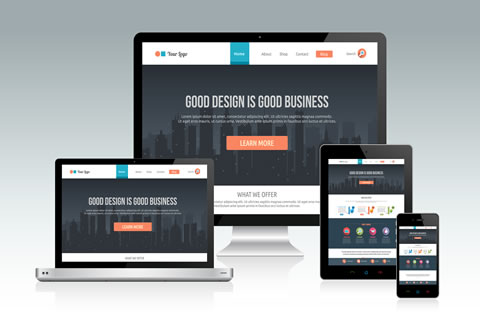Responsive Web Design 5 Keys to Keeping Your Website Acceptable
 Thank you for viewing this article regarding "Responsive Web Design". We are going to touch on 5 key advantages when using responsive design. If at anytime you find yourself with a question or just need more information, please reach out to us using our Online contact form, and we will be happy to assist in supplying you any additional information that you may require.
Thank you for viewing this article regarding "Responsive Web Design". We are going to touch on 5 key advantages when using responsive design. If at anytime you find yourself with a question or just need more information, please reach out to us using our Online contact form, and we will be happy to assist in supplying you any additional information that you may require.
Responsive Web Design - 5 Key Points
Mobile Usage Stats
The time has come where it’s not just speculation, it is now a fact. “Mobile usage will overtake fixed Internet access by 2014”. This is quoted in this article from smartinsights.com.
If your website is not using a responsive layout or you do not have a mobile version of your website, you are really standing outside of todays web standards. If you do have a mobile version of your website, please read #3 below to reference the importance of a responsive design website.
A Positive User Experience
Did you know according to Google’s Think Insights on mobile, when a user lands on your mobile website and gets frustrated, confused or doesn’t see what they are looking for, there’s a 61% chance they will leave your website immediately and go to another website (possibly a competitors website). And the opposite is true if your users have a positive experience with your mobile website, that user is 67% more likely to buy a product or use your services.
Responsive Web Design is preferred for SEO
Search is the most common starting point on a mobile device? 48% of mobile research starts at the search engines. In June 2012, at SMX Advanced, Google’s Pierre Farr went on the record to declare that Google prefers responsive web design over mobile templates.
Now Google has come out with their official recommendations on how to build mobile web sites that work best for users and at the same time work well for Google. If you want to stay current with the SEO trends, Responsive Web Design is the recommended platform.
A Speedy Mobile Experience
According to the Google PageSpeed Developers, standards recommends that the content above the fold on a mobile device loads in under 1 second and the entire page loads in under 2 seconds. This is typically not possible when loading a desktop version of a website on a mobile device. When the user has to wait too long for a web page to load, there is a better than 50% chance they will leave your site. Google has supplied web developers with the testing tools to optimize you site for a faster mobile experience.
Building for the Future
Another big benefit of responsive web site design is that the size of the rendered layout is designed based on screen size, not device. This means that no matter what size screen someone is viewing your website, it will display properly for that screen size.
This design approach sets you up in the future, as new devices (TVs, watches, glasses, etc.) are being used for web browsing, your responsive site will still look beautiful.